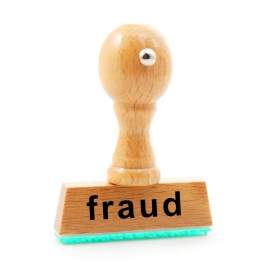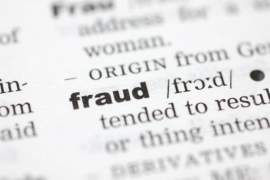
Bankruptcy Fraud Reporting Explained

Laws are in place to help prevent and punish bankruptcy.
For someone reporting fraud, the first step is to provide as much information as possible in a report to the Internal Revenue Service. Under bankruptcy laws, the IRS is responsible for performing bankruptcy fraud investigations, and submitting as much information as possible to the IRS will ensure that the proper authorities are being alerted, and that the IRS can then bring such information to the attention of other federal investigators. Reporting fraud to the IRS should involve as much detail about business dealings as possible, to ensure that the IRS actually has enough information to pursue an investigation.
Generally speaking, your state's revenue service is a good place to go, because they can not only use the help of individuals reporting fraud, but they can also give you information on the appropriate way to deal with such incidences. The state revenue service is particularly important if the bankruptcy fraud revolves around state issues, such as the misuse of state welfare and state resources while claiming bankruptcy. Bankruptcy laws are federal, but bankruptcy fraud can take this more state oriented form, and in such a case, reporting fraud to state authorities will likely be more effective in bringing about justice.
If you are reporting fraud about anyone close to you in any significant fashion, including friends, family, and business associates, then you will likely want to secure legal counsel, in addition to reporting fraud to the proper authorities. The worst possible result for an individual who is reporting fraud would be to get caught up in a lawsuit from those he or she was reporting about.
Seeking the aid of an appropriate lawyer will help protect you from any possible fallout of reporting fraud. Bankruptcy laws do not perfectly protect people reporting information, unfortunately. On a more personal level, as well, having a lawyer to act as intermediary might help to avoid trouble if the people you are reporting on are, indeed, close to you.
It will also be important, when reporting fraud, to ensure that you cannot be accused of deception yourself. Ensure that you have accurate records accessible when you are reporting fraud, and also ensure that you have no problems with informing a court about the methods you used to obtain those records and any other information you may have reported. If you did not obtain the information legitimately, then it is inadmissible, regardless of how relevant it might be; it is important to know this, so that you do not cause more trouble for yourself by reporting fraud than you could possibly fix.
One other important element of reporting fraud is that you might be interested in looking into whether or not your state's bankruptcy laws, or other laws, set up a bounty program for those who provide information. Because fraud in general is a major concern, and because it is so often difficult to detect, some states have implemented a rewards system for those who have any information to report on fraud.
Claiming the reward may make your attempts at reporting fraud seem more mercenary, but if you are taking a risk in reporting fraud, then there is no reason not to take advantage of a fully legal program designed to thank you for your help.



















